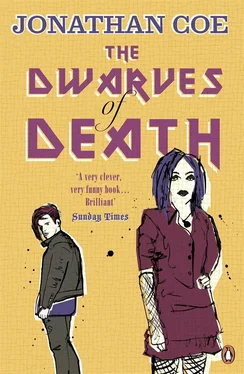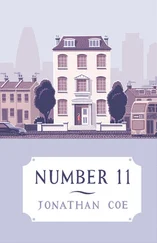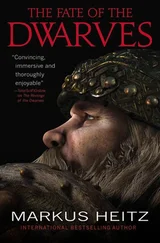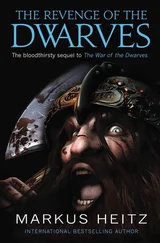‘What else can I do?’
‘I don’t know.’
Madeline paused, and then said another odd thing.
‘My parents think I’m an accountant.’
‘What?’
‘After I left university, I started to train as an accountant. That was where I met Piers — you know, the friend I was supposed to be seeing that night? But I got bored, so I gave it up. But I haven’t told my parents about it yet.’
‘When was this?’
She frowned. ‘Nearly a year ago, now.’
‘Where are your parents?’
‘In America. Daddy works for this bank. They asked him to be an overseas manager.’
‘Don’t you miss them?’
‘No.’
‘Do you have any brothers or sisters?’
‘A brother. He’s in Japan somewhere.’
‘Do you miss him?’
‘No.’ She smiled, blandly. ‘We weren’t very close, my family. We travelled about all over the place. My parents went to Italy for a while and left us with relatives. They separated for a while and I lived in Ireland with my mother. It feels as though my father and I never spent more than a few months together.’
‘So when did he use to listen to “My Funny Valentine”?’
The reference didn’t seem to register.
‘I’ve only had two phone calls from them in all the time they’ve been away. But every so often I write to them. That’s when Piers is useful.’
‘In what way?’ I asked. For some reason I already disliked this Piers character. (Well, forget ‘for some reason’. It was for the obvious reason.)
‘He still works for this accountancy firm, you see, and he can get me sheets of their headed notepaper. So I write to my parents on this notepaper and they still think I’m working as an accountant.’
‘That’s awful,’ I said. ‘Why do you have to lie to them?’
‘They’d be furious. They didn’t put me through university just so I could end up as a glorified nanny.’
‘My parents have never tried to stop me doing anything I wanted to do,’ I said. ‘They trust me.’ I hope this didn’t sound as pompous to her, then, as it does to me, now. But I could feel my mood deteriorating and I asked her another petulant question. ‘So you and Piers are pretty close, are you, one way and another?’
‘We’re just old friends, that’s all. I like him.’ She held up her wrist. ‘Look, he gave me this, once.’
‘What, the bruise?’
‘No, silly, the bracelet.’
It was thin and elegant and looked as though it was made of solid gold and had cost him about five thousand pounds. I hated it.
‘Very nice,’ I said. I would have to find out when her birthday was and start putting money into a savings account.
‘Don’t worry,’ she said. ‘He’s not my boyfriend.’
I thought that if my feelings were that obvious, I might as well press the point.
‘There’ve been… men in your life, have there?’
‘Not really,’ she said, seeming more bored than embarrassed by the question. ‘There was someone a couple of years ago, but it wasn’t very serious. We used to meet on Saturdays and go up to walk his dog on Hampstead Heath.’
‘What was his name?’
‘Rover, I think. This food’s a long time coming, isn’t it?’
I always have this problem with restaurants. I know that the idea is to catch the waiter’s eye, or to make some kind of discreet gesture; there are some people (Chester would be one of them) who only have to make some lazy little movement with their right forefinger for a whole army of waiters to descend on them, dancing attendance. Me, I can get up and stand right in their path, waving my arms about like someone trying to flag down a speeding taxi, and they still manage to look right through me. I wouldn’t mind, but this disability seems to rub off on to whoever I’m dining with: so there we were, the only two customers in this bloody restaurant, with about fifteen waiters standing over by the till acting like the place hadn’t even opened yet.
‘I suppose I only liked him,’ Madeline said suddenly, ‘because he was a Catholic.’
‘It’s that important to you?’
‘It makes a difference.’
‘I’m not a Catholic.’
‘I know. I don’t mind.’
I looked at her full in the face for as long as I thought good manners would allow. She was without doubt the most beautiful woman I had ever dated. Oh, Stacey was pretty, there’s no denying that: but Madeline was in a different class altogether. It occurred to me, from the way she was dressed, from the way her hair was done, from the way she was made up, that she must have spent hours preparing for this evening, and I felt suddenly ashamed of my shabby work clothes and my sloppy assumption that I could just turn up at her house, without making any special effort, and expect the whole occasion to go swimmingly. A swirl of feelings, compounded of desire and incipient affection and a wish to apologize, swept over me and it was all I could do to refrain from leaning across the table and kissing her long and gently on the mouth.
When the time came to kiss her good night, in the lamplit doorway of that unbelievable mansion, I was determined to do the job properly. I don’t know what expectations I had arrived with, exactly, that night. Somewhere at the back of my mind I had probably believed that I would end up sleeping with her, but there was no sense of frustration or anti-climax when I realized that this wouldn’t happen, tonight or even for some time to come. I was happy, for now, to cup her cheeks between my palms, to feel her face tilt expectantly towards me, to plant my open mouth against hers, to sense a tiny yielding, and then to whisper ‘Good night, Madeline’ and hear her murmur in reply. As I walked back towards the tube station, I felt that no satisfaction could be more complete.
Perhaps I would have been less happy if I had known that on this first date, Madeline and I had come as physically close as we would ever come; that we would never surpass that kiss — wouldn’t even equal it, more often that not. Except once. Except for an evening when we had eaten somewhere near the Aldwych, the Waldorf or some other place that I couldn’t really afford, and we walked down to the Thames, and she slid her hand into mine, and one minute we were standing looking at the water and then the next she had put her arms around me and suddenly we were kissing with a passion which baffled and astonished me, her tongue crushing against mine, her mouth biting into my lips until it was me, after all, who had to withdraw and look away. She never explained those moments to me and after I had seen her on to her train, I staggered home across Waterloo Bridge like a drunken man, reeling with shock and pleasure, my head and body throbbing with excitement.
‘Are you sure you won’t have another?’ somebody asked.
It was Chester, standing over me as I sat at the piano.
I closed the lid.
‘Why not?’ I said, and followed him to the bar.
Just as Chester was paying for my drink, a tall, angular, sallow young man rushed in and grabbed him by the shoulder. He had restless eyes and a shock of black hair, greased back and centre-parted, and he seemed very agitated. Chester registered surprise and, I thought, even a little anger on seeing him.
‘Paisley? What the hell are you doing here?’
‘I’ve got to talk to you, Chess. I need to have a word.’ He didn’t look at Chester as he said this, but kept staring restlessly around him, as though he thought he was being followed or something.
‘Not now, Paisley, for God’s sake. Can’t you see I’m busy?’
‘I just need a quick word. Five minutes.’
‘I told you not to come and find me here, didn’t I?’
‘Five minutes, Chester.’ He put his hand on his shoulder and started clawing it until Chester pushed him away.
Читать дальше












